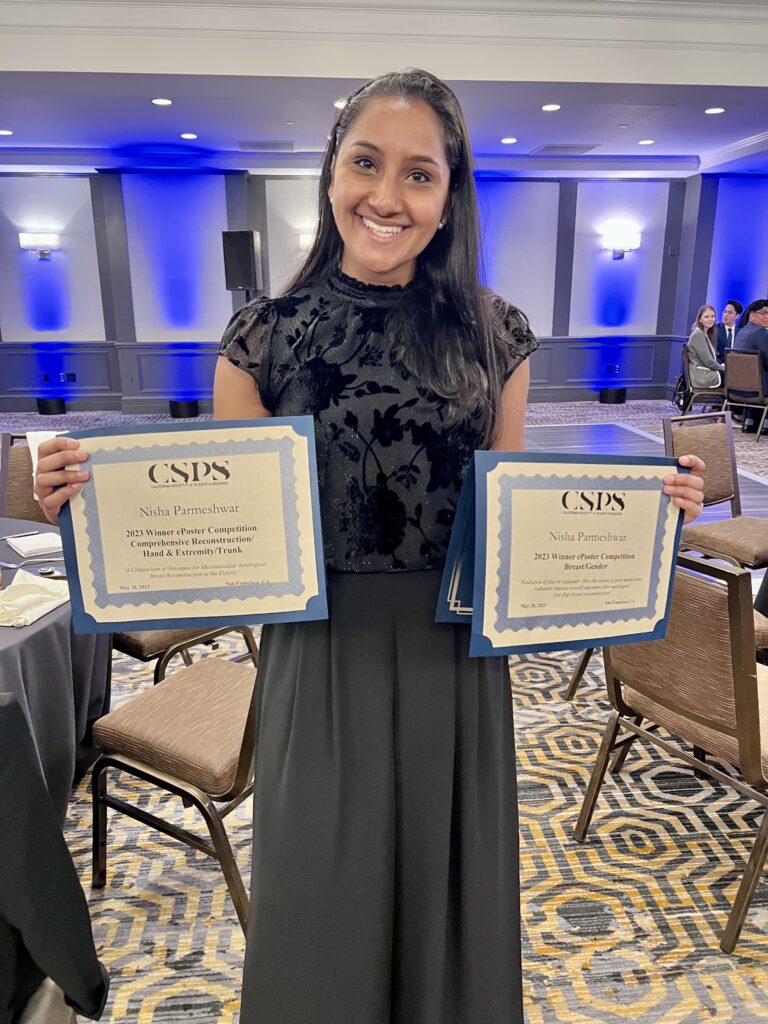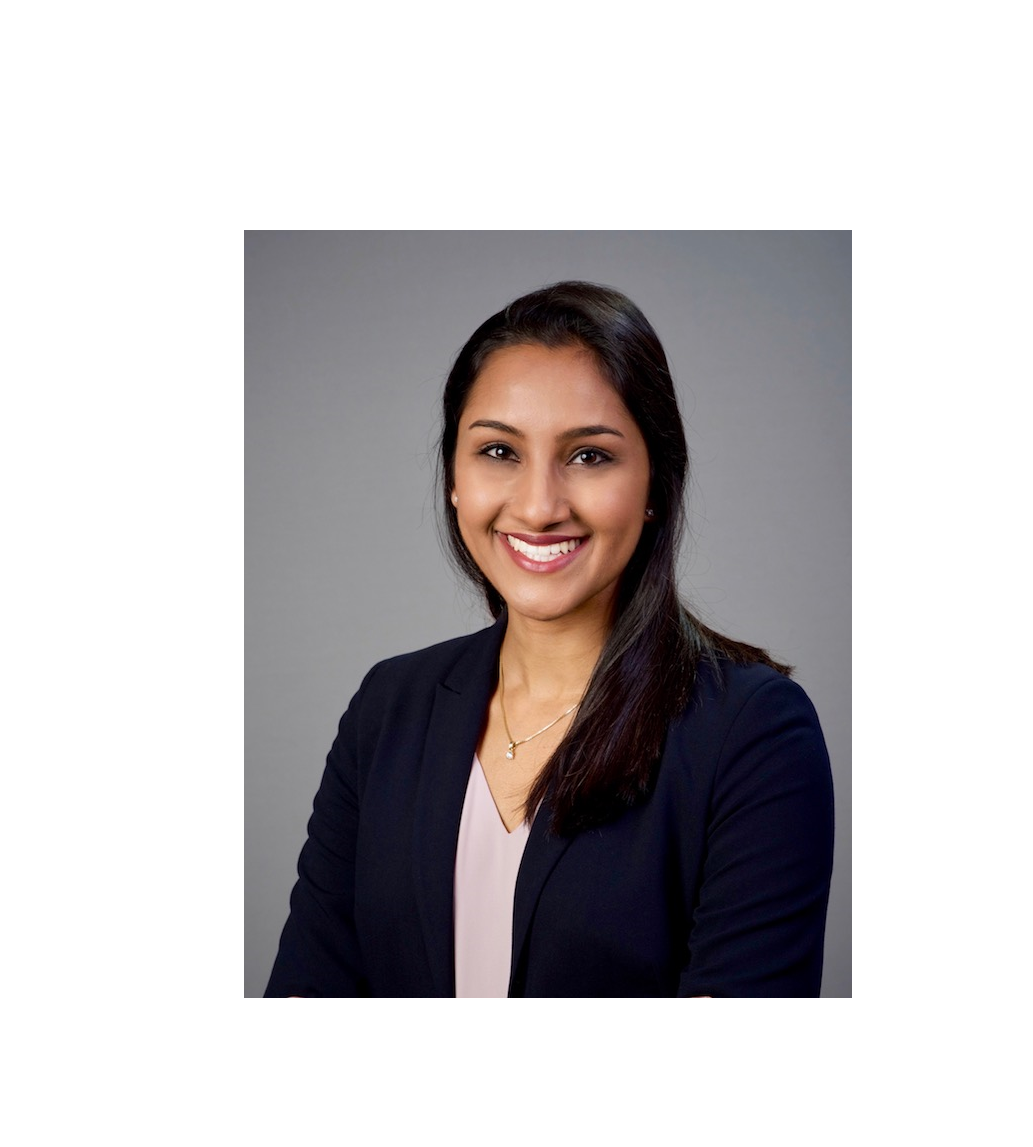1. How did you get interested in your research topic?
Early in my residency with a particular interest in reconstructive surgery, I started looking into outcomes of our breast reconstruction patients at UCSF. I noticed that despite many surgeons routinely giving extended courses of oral antibiotics to post-mastectomy patients after implant-based breast reconstruction, our data showed relatively high infection rates, as did the literature. It made us wonder about the utility of antibiotics then in truly protecting against infections, or potentially breeding resistance for more devastating, untreatable implant complications. The field of microbiome science is a novel way to study this problem which had never been seen before in plastic surgery, and our group hypothesized there could be individualized differences in the breast and gut microbiome of certain patients that could predispose one to develop an infection and/or to benefit from prophylactic antibiotics. Given its broad application in all surgical fields I was extremely interested in helping to carry out our prospective randomized trial looking at the effect of prophylactic antibiotics on a patient’s microbiome, and breast reconstructive outcomes.
Similarly, I wondered about other ways to improve our outcomes, and was curious about the application of topical tranexamic acid (TXA), something that is used frequently off-label in aesthetic surgery and pediatric plastic surgery to decreased bleeding. I think it has the potential, with minimal associated risks, to improve hematoma and seroma outcomes in breast surgery. After systematically reviewing the literature for supporting evidence, I helped start a new trial looking at the use of topical TXA in breast reconstruction patients.
2. How did you select your research mentorship team?
I was fortunate to find an incredibly supportive research mentorship team of amazing female role models. I started working with Dr. Merisa Piper from my intern year with a few clinical outcome projects in breast reconstruction, and those projects looking at our institutional outcomes really served as the foundation for our inquiries on how/what we could do to improve our complication rates. I was then connected with Dr. Laura Esserman as a result of previous microbiome work she had done among breast cancer patients, and she helped foster more creative thinking and design of studies to help solve our clinical problems. Additionally, Dr. Laura Barnes who is a plastic surgery resident one year above me spearheaded the microbiome project from the ground up, inspiring me to continue in her footsteps with this trial, and start another looking at TXA.
3. How will you incorporate your research into your future career goals?
I am interested in academic reconstructive plastic surgery and my dedicated research year in residency helped me develop translational research skills required to ask and answer questions that could affect clinical change, while working with multi-disciplinary groups to solve complex problems in health care. I am excited about the possibilities for microbiome science, and hope to leverage knowledge of this innovative area in my career for improved outcomes in the future.

